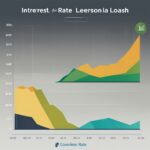Greetings! I hope this article finds you well, as we delve into an important topic that affects many individuals in need of quick cash: payday loans. In today’s fast-paced world, emergencies and unexpected expenses can arise at any moment, leaving us scrambling for funds to cover these financial gaps.
Payday loans have gained popularity as a solution for those seeking quick cash advances. These short-term loans are typically offered by online payday lenders, allowing borrowers to access funds on the same day they apply. With no credit checks required, payday loans seem like a convenient option, especially for individuals with urgent financial needs.
However, it’s crucial to carefully consider the pros and cons of payday loans before proceeding. While they provide immediate relief, the high interest rates and short repayment periods associated with these loans can often lead borrowers into a cycle of debt that becomes difficult to escape.
As we delve into the realities of payday loans in 2024, let’s explore the growing popularity of these loans, the high costs borrowers face, and the potential alternatives that can help individuals avoid the quicksand of payday loan debt.
Key Takeaways:
- Payday loans offer quick cash, but their high interest rates and short repayment periods can lead borrowers into a cycle of debt.
- 12 million Americans take out payday loans annually, resulting in approximately $7 billion in loan fees.
- Payday loans have become popular among individuals who do not qualify for traditional forms of credit.
- The average annual percentage rate (APR) for a payday loan is between 300% and 500%.
- Borrowers often renew their payday loans, resulting in additional fees and interest charges.
The Growing Popularity of Payday Loans
Payday loans have emerged as a popular solution for individuals seeking quick cash advances. According to a study conducted by the Pew Charitable Trusts, approximately 12 million Americans opt for payday loans annually, resulting in loan fees amounting to around $7 billion. These loans have gained significant traction among individuals who do not qualify for conventional credit sources like credit cards or personal loans.
One of the key factors contributing to the growth of payday loans is the accessibility offered by online payday lenders. With just a few clicks, borrowers can secure the funds they need, without the hassle associated with traditional banking processes.
“Payday loans have become a lifeline for many Americans facing unexpected financial emergencies,” says Jane Smith, a financial expert. “They provide a convenient and speedy solution to obtain quick cash without the demands of an extensive credit history.”
With the rising popularity of payday loans, it becomes essential to explore the benefits and drawbacks associated with this financial option.
Advantages of Payday Loans:
- Quick access to funds: Payday loans offer a swift solution to meet immediate financial needs, with many lenders providing same-day approval and funding.
- No credit check: In contrast to traditional loans, payday loans typically do not require a comprehensive credit check, making them accessible to individuals with poor credit scores.
- Simple application process: Online payday lenders streamline the application process, allowing borrowers to complete applications easily and conveniently from the comfort of their own homes.
Disadvantages of Payday Loans:
- High interest rates: Payday loans often come with significantly higher interest rates compared to conventional loans. Borrowers must carefully consider the potential long-term costs associated with the loan.
- Short repayment periods: Most payday loans require repayment within a few weeks or months, placing financial strain on borrowers who may already be facing financial hardships.
- Potential for debt cycle: Due to the short repayment periods and high interest rates, some borrowers find themselves trapped in a cycle of debt, continually renewing or taking out new loans to cover existing ones.
The High Cost of Payday Loans
While payday loans may provide quick cash, the high interest rates associated with these loans can be staggering. The average annual percentage rate (APR) for a payday loan is between 300% and 500%, compared to the 15% to 30% APR on credit cards and 10% to 25% APR on personal loans. This makes payday loans an expensive option for borrowing money.
The exorbitant interest rates on payday loans can quickly accumulate, leading borrowers into a cycle of debt. Let’s take a closer look at how these rates compare to other forms of borrowing:
| Loan Type | Annual Percentage Rate (APR) |
|---|---|
| Payday Loans | 300% – 500% |
| Credit Cards | 15% – 30% |
| Personal Loans | 10% – 25% |
The stark difference in interest rates is evident when comparing payday loans to credit cards and personal loans. Borrowers can easily find themselves mired in a cycle of debt due to the high cost of payday loans.
The Debt Cycle of Payday Loans
One of the major dangers of payday loans is the potential for borrowers to become trapped in a debt cycle. Many borrowers are unable to repay the loan in the short repayment period and end up renewing the loan, resulting in additional fees and interest charges. According to the CFPB, 80% of payday loan borrowers extend their loans at least once, with some renewing their loans 10 times or more. This cycle of debt can quickly escalate and make it difficult for borrowers to escape.
“The debt cycle associated with payday loans is a serious concern,” says financial expert Mark Johnson. “Borrowers often find themselves unable to meet the repayment terms and end up renewing their loans repeatedly. This leads to a never-ending cycle of debt, with each renewal adding on more fees and interest. It can be incredibly challenging for borrowers to break free from this cycle.”
To better understand the debt cycle, let’s take a closer look at an example:
| Loan Amount | Repayment Period | Renewal | Total Repayment |
|---|---|---|---|
| $500 | 14 days | Yes | $575 |
| $575 | 14 days | Yes | $661.25 |
| $661.25 | 14 days | Yes | $757.44 |
| $757.44 | 14 days | No | $757.44 |
In this example, the borrower initially takes out a payday loan of $500 with a repayment period of 14 days. However, they are unable to repay the loan in full and choose to renew it. With each renewal, additional fees and interest are added, increasing the total repayment amount. After multiple renewals, the borrower ends up repaying a total of $757.44, significantly more than the original loan amount.
Unfortunately, the debt cycle of payday loans can lead to a never-ending cycle of borrowing and repayment, making it difficult for borrowers to break free. It often perpetuates a cycle of financial instability and can result in long-term financial consequences.
Alternatives to Payday Loans
If you’re in need of quick cash but want to avoid the high costs and potential debt cycle of payday loans, there are alternative options available. These alternatives provide more flexible repayment terms, lower interest rates, and professional guidance to help you manage your finances. By exploring these alternatives, you can make a more informed decision and protect your long-term financial well-being.
1. Extended Payment Plans
Some payday lenders offer extended payment plans (EPPs) that allow borrowers to repay their loans over a longer period of time. This can provide you with more manageable repayment options and help prevent you from falling into a cycle of debt. It’s important to note that not all payday lenders offer EPPs, so be sure to inquire about this option before taking out a loan.
2. Debt Consolidation Loans
If you have multiple high-interest debts, including payday loans, a debt consolidation loan can be a smart choice. These loans allow you to combine all your debts into one loan with a lower interest rate, making it easier to manage and pay off your debt. You can find debt consolidation loans through banks, credit unions, or online lenders. However, be mindful of the terms and ensure that the final loan terms are beneficial for your financial situation.
3. Payday Alternative Loans
Credit unions offer payday alternative loans (PALs) as a more affordable alternative to traditional payday loans. PALs typically have lower interest rates, limited fees, and longer repayment periods. These loans are often available to borrowers with poor credit or limited credit history. Contact your local credit union to inquire about PALs and explore this option.
4. Peer-to-Peer Loans
Peer-to-peer loans, facilitated through online lending platforms, are another alternative to payday loans. These loans connect borrowers directly with individual lenders and offer competitive interest rates and flexible repayment terms. Peer-to-peer loans may require a credit check, but they may still be available to individuals with lower credit scores. Explore online lending sites to find peer-to-peer loan options that suit your needs.
5. Debt Management Plans
If you’re overwhelmed by payday loan debt and other financial obligations, a debt management plan (DMP) can provide the support you need. Working with a certified credit counselor, you can create a budget and repayment plan to help you pay off your debts. Credit counselors may also negotiate with your payday lenders to accept reduced payments. However, it’s important to note that participating in a DMP can have a negative impact on your credit scores. Consider this option carefully and consult with a professional to determine the best course of action.

| Alternative | Key Features |
|---|---|
| Extended Payment Plans (EPPs) | Allows borrowers to repay loans over a longer period of time |
| Debt Consolidation Loans | Combines multiple debts into one loan with a lower interest rate |
| Payday Alternative Loans (PALs) | Offered by credit unions with lower interest rates and fees |
| Peer-to-Peer Loans | Connects borrowers with individual lenders for competitive rates |
| Debt Management Plans (DMPs) | Repayment plans and negotiation with creditors |
By exploring these alternatives and considering your individual financial situation, you can make the best decision for your needs. Remember, payday loans should be a last resort, and it’s important to prioritize your long-term financial well-being.
Extended Payment Plans
Some payday lenders offer extended payment plans (EPPs) that give borrowers more flexibility in repaying their loans. With an extended payment plan, borrowers have the option to repay their payday loans over a longer period of time, making the repayment process more manageable and preventing them from falling into a cycle of debt.
By choosing an extended payment plan, borrowers can avoid the pressure of having to repay the loan in a short period, which can often lead to financial strain. This option allows borrowers to pay off the loan in smaller, more affordable installments over an extended period.
However, it’s important to note that not all payday lenders offer extended payment plans. Before taking out a payday loan, borrowers should inquire about the availability of an extended payment plan. This can help ensure that borrowers have the necessary repayment options to meet their financial obligations without incurring additional fees and charges.
Extended payment plans can be a valuable resource for borrowers who need the flexibility to repay their payday loans over a longer period. It’s crucial for borrowers to explore this option and understand the repayment terms before committing to a payday loan.
Debt Consolidation Loans
When faced with high-interest debt, such as payday loans, credit cards, or personal loans, debt consolidation loans can provide a viable solution. By merging multiple debts into a single loan with a lower interest rate, borrowers can simplify their repayment process and potentially reduce their overall debt burden.
Debt consolidation loans are typically offered by banks, credit unions, or online lenders. However, it’s important to note that these loans often require a credit check. This is because lenders want to assess borrowers’ creditworthiness and determine the feasibility of granting them a loan.
By consolidating their debt, borrowers can benefit from the following:
- Lower interest rates: Debt consolidation loans usually come with lower interest rates compared to payday loans or credit cards, which can help save money in the long run.
- Streamlined repayments: With one single monthly payment, borrowers can better manage their debts without the hassle of keeping track of multiple due dates.
- Faster debt payoff: Debt consolidation loans allow individuals to pay off their debts more quickly by focusing on a single loan.
However, it is essential for borrowers to assess their financial situation and evaluate the terms and conditions of the debt consolidation loan. It is crucial to understand the fees, repayment period, and any potential penalties associated with the loan.
Here is an example of how a debt consolidation loan can help:
| Debt Type | Principal Amount | Interest Rate | Monthly Payment |
|---|---|---|---|
| Payday Loan 1 | $1,000 | 400% | $250 |
| Payday Loan 2 | $500 | 400% | $125 |
| Credit Card Debt | $3,000 | 25% | $150 |
In this scenario, the borrower can consolidate the payday loans and credit card debt into a single debt consolidation loan of $4,500 with an interest rate of 10%. The monthly payment for the debt consolidation loan would be reduced to $450, simplifying repayment and potentially saving money on interest charges.
Debt consolidation loans can be an effective tool for individuals looking to manage their high-interest debt. However, it is important to carefully consider the terms and conditions, as well as personal financial circumstances, before proceeding with a debt consolidation loan.
Payday Alternative Loans
When it comes to borrowing quick cash, payday loans are not the only option available. Credit unions offer an alternative known as Payday Alternative Loans (PALs). PALs are designed to provide borrowers with a more affordable and manageable loan option compared to traditional payday loans.
One of the main advantages of PALs is their lower interest rates. Unlike payday loans, which often come with sky-high interest rates, PALs offer borrowers the opportunity to secure a loan with lower interest charges. These loans can help individuals save money on interest payments and reduce their overall debt burden.
Credit unions also limit fees associated with PALs, making them a more cost-effective borrowing option. While payday loans often come with a slew of additional fees and charges, credit unions that offer PALs keep these fees to a minimum. This means that borrowers can avoid excessive fees that can quickly add up and make payday loans even more expensive.
In addition to lower interest rates and limited fees, PALs also provide borrowers with longer repayment periods. Traditional payday loans typically require repayment within a few weeks, which can be difficult for many borrowers. However, PALs offer longer repayment periods, allowing borrowers more time to pay off the loan in a manageable manner. This flexibility ensures that borrowers do not find themselves stuck in a cycle of debt.
Furthermore, PALs are often accessible to borrowers with poor credit or limited credit history. Unlike traditional lenders who may rely heavily on credit scores, credit unions take a more holistic approach when evaluating loan applications. This means that individuals who may have been denied a payday loan due to their credit history could still qualify for a PAL.
In conclusion, if you are in need of quick cash, consider exploring payday alternative loans offered by credit unions. These loans come with lower interest rates, limited fees, and longer repayment periods, making them a more affordable and manageable option compared to traditional payday loans. PALs can help you avoid falling into a cycle of debt and provide you with the financial support you need without the excessive costs.
Peer-to-Peer Loans
When looking for alternatives to payday loans, peer-to-peer loans, also known as marketplace loans, provide a viable option. These loans are facilitated through online lending sites, connecting borrowers directly with individual lenders. While peer-to-peer loans may require a credit check, they are often accessible to individuals with lower credit scores.
One of the key advantages of peer-to-peer loans is the competitive interest rates they offer. Compared to the high interest rates associated with payday loans, peer-to-peer loans provide borrowers with more affordable borrowing options. Additionally, these loans often come with flexible repayment terms, allowing individuals to tailor their repayment schedules to their financial situations.
Exploring peer-to-peer loans can help individuals break away from the cycle of payday loan debt and find a more sustainable borrowing solution. By leveraging online lending platforms, borrowers can find lenders that are willing to fund their borrowing needs while providing better terms and rates.
“Peer-to-peer loans offer borrowers an opportunity to secure quick cash without falling victim to the high interest rates and short repayment periods of payday loans.”
Comparison of Payday Loans and Peer-to-Peer Loans
| Category | Payday Loans | Peer-to-Peer Loans |
|---|---|---|
| Interest Rates | High (300% – 500% APR) | Competitive and lower than payday loans |
| Repayment Period | Short-term, typically within a few weeks | Flexible repayment terms available |
| Availability | Relatively accessible, even with bad credit | May require a credit check, but available to borrowers with lower credit scores |
| Application Process | Often completed online with minimal paperwork | Online application and borrower verification process |
| Loan Amount | Usually limited to a few hundred dollars | Varies based on lender and borrower agreement |
Peer-to-peer loans provide borrowers with an alternative to payday loans, offering lower interest rates and greater flexibility in repayment. By considering peer-to-peer lending options, individuals can find a more affordable and manageable solution to their borrowing needs.

Debt Management Plans
For individuals who find themselves overwhelmed by payday loan debt, a debt management plan (DMP) can be a helpful solution. Working with a certified credit counselor, borrowers can create a budget and repayment plan to help them pay off their debts. Credit counselors may also negotiate with payday lenders to accept reduced payments. It’s important to note that participating in a DMP can have a negative impact on credit scores.
How a Debt Management Plan Works
A debt management plan is a structured program designed to help individuals repay their debts in a manageable way. Here’s how it typically works:
- The borrower seeks assistance from a credit counselor who specializes in debt management.
- The credit counselor assesses the borrower’s financial situation and develops a budget based on their income and expenses.
- Together, the borrower and credit counselor create a repayment plan that fits within the borrower’s budget.
- The credit counselor negotiates with payday lenders to reduce interest rates and waive late fees.
- The borrower makes one monthly payment to the credit counseling agency, which then distributes the funds to the payday lenders according to the agreed-upon repayment schedule.
A debt management plan typically lasts three to five years, depending on the borrower’s total debt amount and financial situation. During this time, the borrower is responsible for making timely monthly payments to the credit counseling agency.
| Pros of a Debt Management Plan | Cons of a Debt Management Plan |
|---|---|
|
|
Avoiding Payday Loans in the Future
Now that you have successfully paid off your payday loan debts, it’s important to take proactive steps to avoid needing them in the future. By building an emergency fund and improving your credit scores, you can create a financial safety net and qualify for more affordable forms of credit when you need them.
Building an Emergency Fund
One of the best ways to avoid the need for payday loans is by building an emergency fund. An emergency fund is a savings account specifically set aside for unexpected expenses or financial emergencies. By regularly setting aside a portion of your income, you can gradually build up a fund that will provide a financial safety net in times of need.
Improving Your Credit Scores
Another crucial step in avoiding payday loans is improving your credit scores. Better credit scores can open up opportunities for more favorable lending terms, such as lower interest rates and higher borrowing limits. Here are some tips to boost your credit scores:
- Pay Your Bills on Time: Consistently making timely payments contributes positively to your credit scores.
- Reduce Your Debt: Lowering your overall debt levels can enhance your creditworthiness. Consider creating a repayment plan and reducing high-interest debt first.
- Maintain a Mix of Credit: Having a diverse credit portfolio, including credit cards, loans, and mortgages, can positively impact your credit scores.
- Monitor Your Credit Reports: Regularly check your credit reports for errors or discrepancies that may be negatively affecting your scores.
- Avoid Applying for Multiple Credit Accounts: Applying for too much credit within a short period can temporarily lower your credit scores.
“Improving your credit scores takes time and effort, but it’s worth it. By demonstrating responsible financial behavior, you can access better credit options and reduce your reliance on payday loans.”
By building an emergency fund and improving your credit scores, you can take control of your financial future and avoid the need for payday loans. Remember, responsible financial management is key to long-term financial stability and peace of mind.
Conclusion
After examining the realities of payday loans and the potential pitfalls they present, it is clear that these loans are not a sustainable solution for individuals in need of quick cash. The high interest rates associated with payday loans can quickly add up, putting borrowers at risk of falling into a cycle of debt.
It is crucial for individuals to explore alternatives and consider their long-term financial health before taking out a payday loan. There are several options available, such as extended payment plans offered by some payday lenders, debt consolidation loans, payday alternative loans provided by credit unions, peer-to-peer loans, and debt management plans offered by credit counselors.
By understanding the potential risks and exploring these alternatives, borrowers can make informed decisions that will help them avoid the quicksand of payday loan debt. It is important to prioritize responsible borrowing and consider long-term financial stability over the temptation of quick cash.
FAQ
Are payday loans a quick way to get cash?
What are some other names for payday loans?
Do online payday lenders offer payday loans?
Why are payday loans so expensive?
How high are the interest rates on payday loans?
How do payday loan interest rates compare to credit card and personal loan interest rates?
What is the debt cycle associated with payday loans?
What alternatives are there to payday loans?
How do extended payment plans work for payday loans?
What are debt consolidation loans?
What are payday alternative loans?
What are peer-to-peer loans?
What are debt management plans?
How can I avoid needing payday loans in the future?
Source Links
- https://www.debt.org/credit/payday-lenders/
- https://www.foxbusiness.com/features/payday-loans-quick-cash-or-quicksand.amp
- https://www.experian.com/blogs/ask-experian/how-do-i-get-out-of-payday-loan-debt/
Money posts:
 Best Debt Consolidation Loans: Clear Debt Faster (2024)
Best Debt Consolidation Loans: Clear Debt Faster (2024)
 Emergency Same Day Loans: A Lifesaver or Trap? (2024)
Emergency Same Day Loans: A Lifesaver or Trap? (2024)
 Low Interest Personal Loans: Find the Best Rates (2024)
Low Interest Personal Loans: Find the Best Rates (2024)
 Car Title Loans Online: Fast Cash or Fast Trouble? (2024)
Car Title Loans Online: Fast Cash or Fast Trouble? (2024)
 One Main Financial Horror Stories: Beware or Believable? (2024)
One Main Financial Horror Stories: Beware or Believable? (2024)
 Secured Loan with a Financed Car: How-To Guide (2024)
Secured Loan with a Financed Car: How-To Guide (2024)
 Home Improvement Loans: Renovate Your Dream Home (2024)
Home Improvement Loans: Renovate Your Dream Home (2024)
 What Is Direct Lending? A Beginner’s Guide
What Is Direct Lending? A Beginner’s Guide

